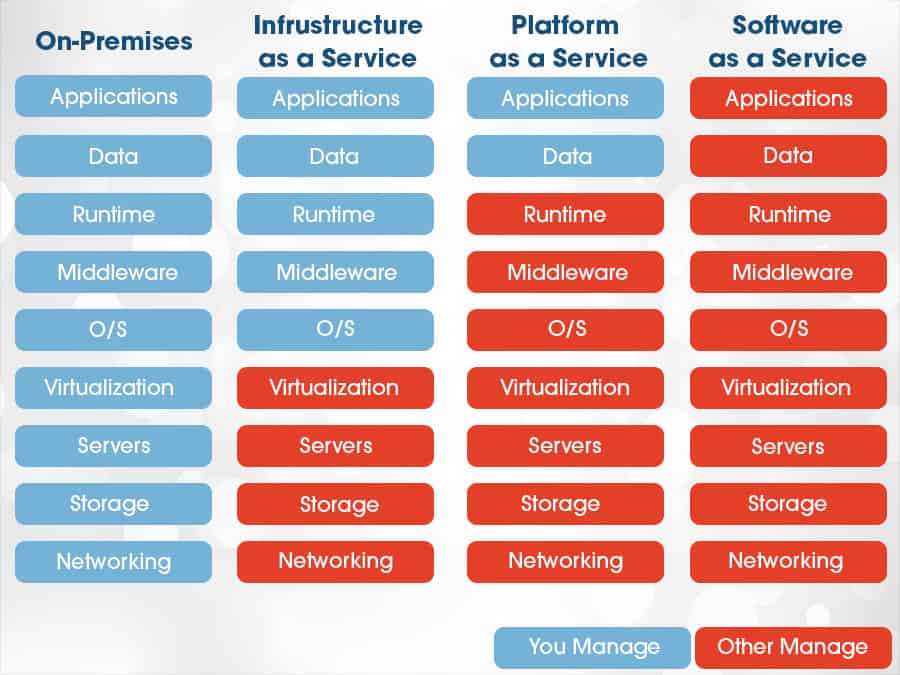Boost Exposure with LinkDaddy Cloud Services Press Release
Wiki Article
Taking Advantage Of the Potential of Cloud Providers for Competitive Edge in the marketplace

Benefits of Cloud Provider

Cost-efficiency is an additional considerable advantage of cloud services, as firms can prevent huge ahead of time financial investments in equipment and software program. Instead, they can go with a pay-as-you-go model, just spending for the resources they consume. This economical technique enables organizations to allocate funds much more tactically, investing in other locations that drive growth and advancement. In general, the benefits of scalability, cost-efficiency, and versatility make cloud solutions a beneficial possession for firms seeking an one-upmanship in today's vibrant market landscape.
Cloud Migration Methods
Cloud movement needs precise planning and seamless implementation to ensure a smooth transition of electronic properties to cloud-based settings. One typical method is the "Lift and Shift" technique, where existing systems are relocated to the cloud without substantial alterations.Additionally, the "Replatforming" technique involves making small changes to applications to enhance their performance in the cloud setting. This approach strikes a balance between rate and optimization, enabling organizations to gain from cloud capacities while lessening interruptions.
For more facility systems, the "Refactoring" approach, likewise referred to as "rearchitecting," entails upgrading applications to be cloud-native. While this method requires more time and sources, it can optimize the advantages of scalability, flexibility, and cost-efficiency that cloud platforms use.
Eventually, picking the ideal cloud migration method depends on aspects such as the organization's objectives, budget, timeline, and technological requirements. By meticulously assessing these factors to consider, services can successfully shift to the cloud and gain an one-upmanship in the marketplace.
Enhancing Information Safety Actions
After carrying out cloud movement methods, companies need to focus on improving data safety gauges to guard their electronic assets successfully. Cloud Services. Data security is paramount in the digital age, especially when leveraging cloud services that include transferring and saving delicate details.Normal protection audits and susceptability analyses are essential to determine and deal with any type of weak factors in the information protection facilities immediately. Training workers on ideal techniques for data protection and enforcing stringent gain access to controls can additionally reduce the risk of inner data violations. By investing in durable data security procedures, organizations can infuse count on amongst their stakeholders and customers, eventually gaining an one-upmanship in the marketplace.
Leveraging Cloud for Scalability
Carrying out cloud solutions allows organizations to dynamically change sources according to require, enhancing scalability and optimizing operational effectiveness. Scalability in the cloud context refers to the capacity to promptly and easily increase or reduce sources as required, giving companies with the versatility to meet changing demands.Additionally, leveraging cloud scalability enables organizations to react quickly to market fluctuations, seasonal needs, or unanticipated growth, guaranteeing continuous service distribution without incurring unneeded expenses. Scalable cloud services encourage business to innovate swiftly, release new applications efficiently, and adjust to advancing business demands with agility.

Implementing Cloud-Based Cooperation
Cooperation in modern-day organization environments has undertaken a considerable improvement with the assimilation of cloud-based modern technologies. Cloud-based cooperation tools have transformed the way teams interact, offering real-time communication, record sharing, and job monitoring capabilities no matter of physical location. By executing cloud-based collaboration options, companies can improve productivity, boost performance, and simplify operations.One of the key advantages of cloud-based partnership is its capability to damage down interaction barriers amongst group members. With attributes like immediate messaging, video conferencing, and digital whiteboards, staff members can work together perfectly and remain connected no matter where they are situated. Furthermore, cloud-based cooperation tools facilitate simple access to shared sources and files, making it possible for employee to function with each other on jobs in a synchronous way.
Additionally, cloud-based cooperation promotes versatility and dexterity within organizations by allowing universal cloud Service remote job and promoting cross-functional teamwork. Employees can work together in real-time, share responses promptly, and make decisions jointly, leading to quicker analytical and improved advancement. In general, implementing cloud-based partnership is crucial for contemporary organizations seeking to stay competitive in today's hectic and interconnected market landscape.
Verdict
Finally, the utilization of cloud services provides various benefits for organizations seeking an one-upmanship in the marketplace. By implementing cloud migration strategies, enhancing data safety procedures, leveraging scalability, and using cloud-based partnership, services can enhance effectiveness, minimize expenses, and stay ahead of the competition. Embracing the possibility of cloud solutions is crucial for companies aiming to do well in today's quickly progressing service landscape.The capacity to harness the capacity of cloud services uses companies numerous benefits, from enhanced agility and scalability to boosted partnership and data safety and security. As organizations browse the complexities of cloud migration and discover cutting-edge methods to leverage cloud modern technology, the concern arises: Just how can services efficiently utilize cloud services to not just keep up with yet likewise exceed their competitors in the vibrant marketplace?
Furthermore, the flexibility used by cloud services enables companies to gain access to information and applications from anywhere, promoting remote work and cooperation among groups located in different geographical areas. - universal cloud Service
By carrying out cloud movement techniques, improving information safety measures, leveraging scalability, and using cloud-based cooperation, companies can improve efficiency, lower prices, and stay ahead of the competitors. Welcoming the potential of cloud services is crucial for organizations looking to prosper in today's swiftly evolving company landscape.
Report this wiki page